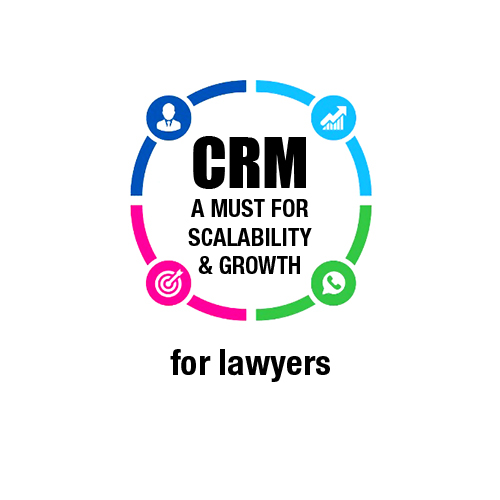 CRM for lawyers
CRM for lawyers
Programming & Tech
CRM development for lawyers
Product Info
CRM development for lawyers involves creating a customized system that helps streamline client management, case tracking, document organization, and other legal processes. It begins by identifying requirements specific to lawyers and selecting a suitable CRM platform. The system is then customized, integrated with existing tools, and secured to ensure compliance with data protection regulations. Training and support are provided to ensure smooth adoption, and ongoing maintenance and continuous improvement are prioritized to enhance efficiency and productivity.Description
-
Developing a customer relationship management (CRM) system for lawyers can greatly improve their efficiency, organization, and client management. Here's a step-by-step guide to help you understand the process of CRM development for lawyers:
-
Identify Requirements: Start by identifying the specific requirements of lawyers and law firms. This could include features such as contact management, case management, document management, task tracking, calendar integration, time tracking, billing, and reporting. Gather feedback from lawyers and legal professionals to understand their needs thoroughly.
-
Choose a CRM Platform: Select a CRM platform that aligns with the requirements of lawyers. There are several options available, both proprietary and open-source. Popular CRM platforms suitable for lawyers include Salesforce, Zoho CRM, Clio, and Insightly. Consider factors like cost, scalability, customization options, and integration capabilities when choosing a platform.
-
Customize the CRM: Tailor the CRM system to meet the specific needs of lawyers. Customize the user interface, data fields, workflows, and automation rules according to legal processes and terminology. Ensure that the CRM captures essential client information, case details, deadlines, and relevant legal documents.
-
Integration: Integrate the CRM system with existing tools and software commonly used by lawyers. This could include email clients (such as Outlook or Gmail), document management systems, time-tracking tools, billing software, and calendar applications. Seamless integration with these tools will ensure a smooth workflow and reduce data duplication.
-
Security and Compliance: Given the sensitive nature of legal data, security, and compliance are crucial considerations. Implement robust security measures, such as encryption, user access controls, and regular data backups. Comply with relevant regulations, such as data protection laws (e.g., GDPR or CCPA), attorney-client privilege, and confidentiality rules.
-
Training and Adoption: Provide comprehensive training to lawyers and staff members to ensure they understand how to use the CRM effectively. Encourage adoption by highlighting the benefits of the CRM system, such as time savings, improved organization, and enhanced client communication. Address any concerns or questions during the training process.
-
Ongoing Support and Maintenance: Maintain a dedicated support system to assist lawyers and staff with any technical issues, questions, or feature requests related to the CRM. Regularly update and maintain the CRM system, addressing bug fixes, performance improvements, and new feature implementations as required.
-
Continuous Improvement: Gather feedback from lawyers and users to continually enhance the CRM system. Conduct periodic reviews to identify areas for improvement and implement necessary changes. Stay up to date with technological advancements and new features that can further streamline legal processes.
Remember that CRM development is an iterative process, and it's important to collaborate closely with lawyers and adapt the CRM system based on their evolving needs.
-

